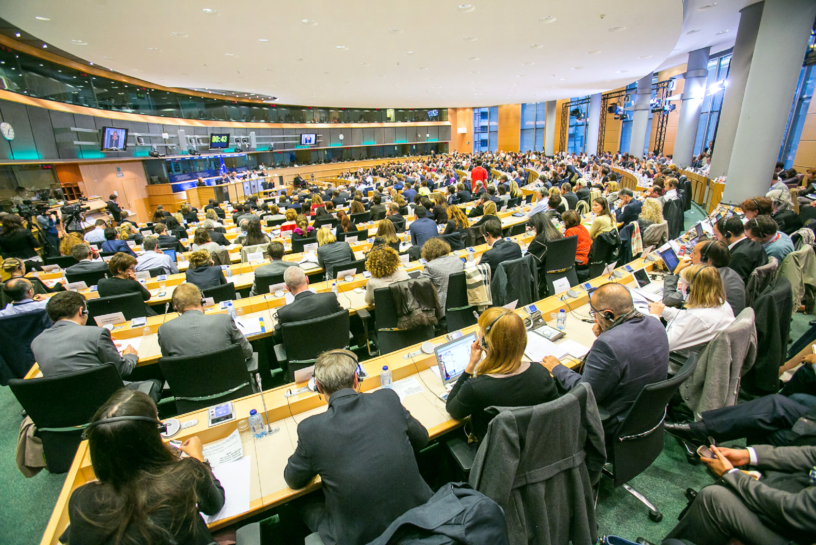The European Parliament’s Committee on Foreign Affairs (AFET) has presented its latest draft reports on Albania, North Macedonia, and Bosnia and Herzegovina, shedding light on their progress and the persisting challenges on their European Union (EU) accession journeys. The report on Albania, drafted by rapporteur Andreas Schieder (S&D), acknowledges significant advancements in key reform areas but underscores the necessity for sustained efforts in judicial independence, anti-corruption measures, and political cohesion.
According to Schieder, Albania has demonstrated notable progress on its path toward EU membership. In 2024, the country successfully opened Clusters 1 and 6, signifying progress in foundational reforms and external relations. This momentum reflects Albania’s ambitions to align itself with EU standards and its goal to be ready for accession by 2030. Furthermore, Albania has been commended as a reliable partner in foreign policy, aligning its diplomatic stance with the EU. This alignment strengthens its credibility as a candidate country, reinforcing its commitment to European integration.
Judicial and Anti-Corruption Reforms: Progress and Shortcomings
A pivotal aspect of the report focuses on the judiciary, particularly the Justice Reform and the Special Structure Against Corruption and Organized Crime (SPAK). The draft document acknowledges the positive trajectory of the vetting process and SPAK’s growing effectiveness in prosecuting high-level corruption cases. However, it raises concerns over continued political interference and undue pressure on the judicial system. Despite progress in judicial restructuring, challenges persist in the form of an understaffed judiciary, inadequate financial allocations for courts, and inefficiencies in judicial training. These obstacles hinder the overall efficiency and credibility of the legal system, highlighting the need for further institutional strengthening.
Political Polarization and Electoral Reforms
One of the recurring concerns in the report is Albania’s internal political polarization, which remains a significant impediment to democratic consolidation. Schieder emphasized the necessity for a more cohesive political environment that fosters constructive dialogue and bipartisan cooperation. Additionally, the report stresses the importance of addressing electoral reforms by implementing recommendations from the OSCE/ODIHR. Ensuring transparent, fair, and inclusive electoral processes is fundamental for Albania’s democratic progress and EU aspirations.
Media Freedom and Environmental Protection
Media independence remains another area requiring substantial improvement. While Albania has made strides in fostering a more open media landscape, concerns about political and economic influence over journalism persist. The report urges authorities to take further steps to ensure press freedom and protect journalists from external pressures. Environmental policies also feature in the assessment, with calls for more stringent measures to address pollution, deforestation, and sustainable development. The EU’s emphasis on environmental standards as part of the accession criteria places additional responsibility on Albania to enhance regulatory frameworks and enforcement mechanisms.
The Road Ahead: Key Recommendations
While Albania’s EU accession trajectory remains positive, the report outlines several critical areas requiring immediate attention:
- Judicial Efficiency: Strengthen the judiciary by increasing personnel, funding, and training for judges and prosecutors.
- Anti-Corruption Measures: Enhance SPAK’s capabilities and safeguard its independence from political interference.
- Political Cohesion: Foster dialogue between political actors to overcome polarization and ensure democratic stability.
- Electoral Integrity: Implement OSCE/ODIHR recommendations to ensure transparent and credible elections.
- Press Freedom: Enforce legal protections for journalists and combat undue influence in media.
- Environmental Reforms: Adopt and implement EU-aligned environmental policies to ensure sustainable development.
Albania’s EU accession process is at a critical juncture, marked by both substantial progress and persistent challenges. While the country has proven its commitment to European integration through judicial reforms and foreign policy alignment, key areas such as political polarization, media independence, and judicial efficiency require sustained efforts. The coming years will be decisive in determining whether Albania can meet the ambitious, yet realistic, goal of EU accession by 2030. The path forward demands unwavering commitment from political institutions, civil society, and the judiciary to ensure a transparent, democratic, and European future for the country.
Written by our correspondent A.T.



